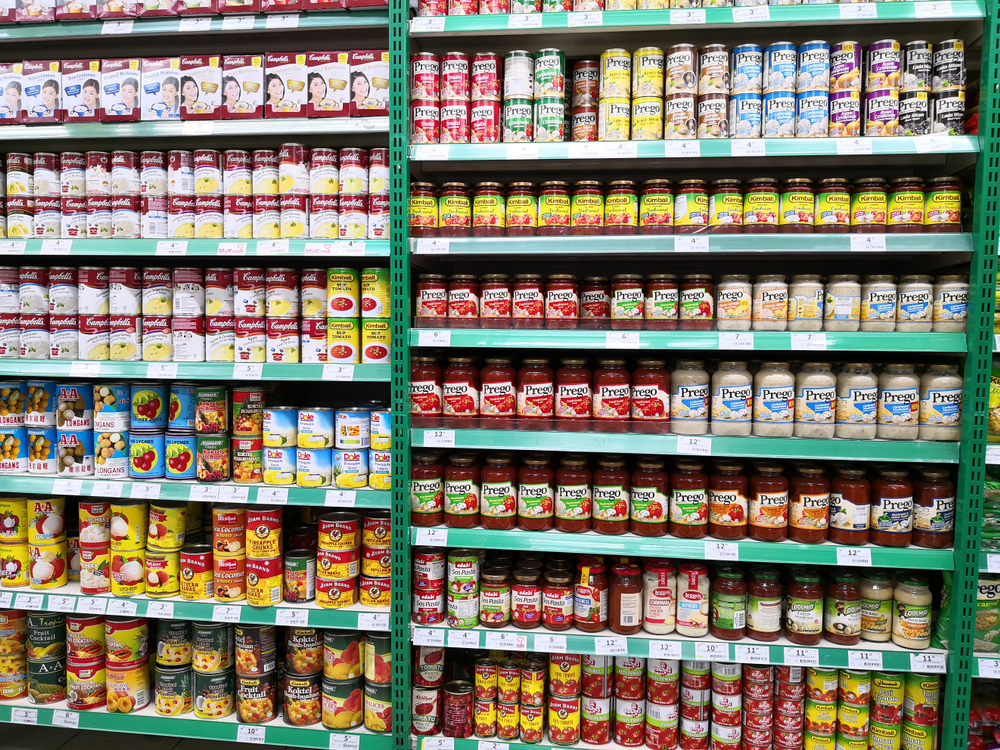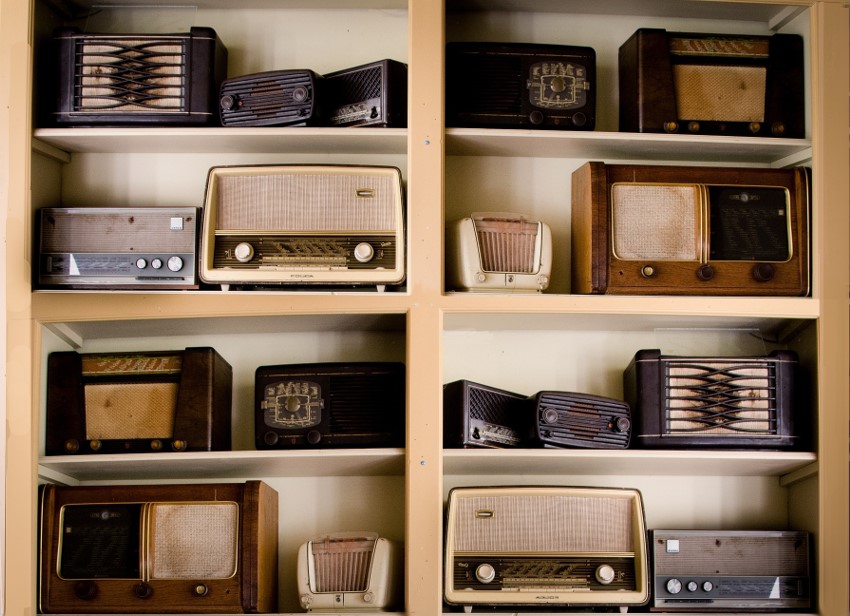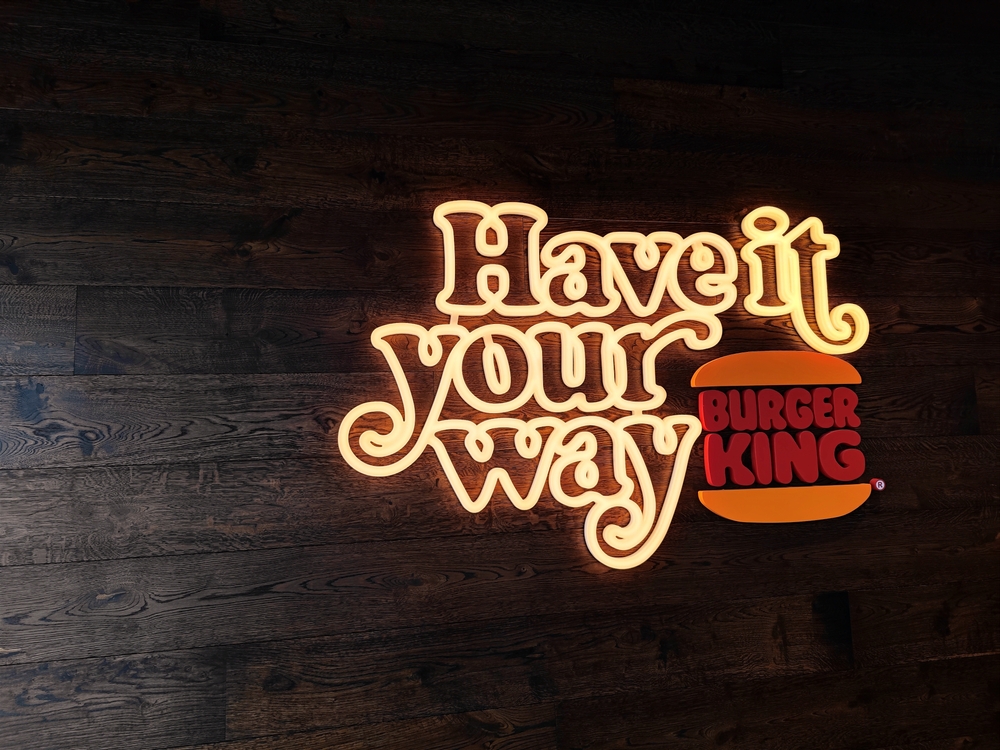
You’re looking at one of my worst nightmares. “Your mission, if you decide to accept it, Mr. Jacobs, is to buy a bottle of Prego spaghetti sauce.”
If you’ve been in a grocery store, besides rising prices, you can’t help but notice that whether you’re talking laundry detergent, pain relievers, mustard, or yes, spaghetti sauce, you’re faced with a great deal of choice. It’s not just sizes, it’s all the different variations on essentially the same product.
As consumer product companies know all too well, there’s a lot to be said for choice. For me, it often mushrooms into “decision stress.” But for most people, its about having so much choose to from.
Variety
It’s one of those odd radio positioning terms. If you’ve ever seen focus group respondents try to wrestle it to the ground, it’s almost laughable. They all want it, especially when it comes to music. They just usually can’t define it.
Like the old Supreme Court Justice Potter Stewart said when trying to define pornography, “I know it when I see it.” It’s similar with radio listeners. Variety? They know it when they hear it.
And when a station owns the “variety” image, it often means they’re miles ahead of the competition. That’s because the opposite of “variety” is repetition. And in the collective mind of the audience, that’s never a good thing.
I thought about these radio images when I ran across an interesting study in the Harvard Business Review. How’s this for the title of a study?
“When Consumers Feel Less Powerful, They Seek More Variety”
So, let’s unpack that.
The premise is this: When customers feel less powerful, they are more likely to seek a wider variety of choice.
As the study’s authors conclude, retailers can make customers feel more powerful when they feature a bigger array of products.
 Could this apply to the way radio programmers present and position their music?
Could this apply to the way radio programmers present and position their music?
That’s the question I asked myself as I read this story. The researchers make the point that those who feel powerless (and doesn’t that sound like a lot of consumers out there?) can feel more in control when they perceive they’ve got a lot to choose from.
Showcasing more choice – in the case of radio, perhaps a special weekend that focuses on variety – can make consumers feel more in control.
Interestingly, the study suggests the perception of power – yes, in positioning language – might have the same effect on consumers, even if it’s “unfeasible for your business.”
Language matters, and the analysis points to ad slogans like the old Burger King “Have it your way” or L’Oreal’s “Because you’re worth it” as effective in making consumers feel empowered.
L’Oreal’s “Because you’re worth it” as effective in making consumers feel empowered.
Variety can go a long way. The conclusion is that “a small amount of variety can be appealing to customers who don’t feel very powerful.” And they note that in the midst of an economic downturn and much societal uncertainty, smart marketers can put points on the board at a time when consumers may not be feeling great about themselves.
In radio, we know perception often overshadows reality. But misguided programming can expose a station that is all hat and no cattle. Running a clever variety promo, followed by one of your most overplayed songs can subvert your efforts.
Still, there’s a lot to be said for imaging variety and choice. I ran across this :10 TV commercial produced in Detroit for WCSX in 1988. Along with the :30 version, this campaign ran at several Classic Rock stations during the period when the format was emerging as a long-term player. The guy running through the warehouse of Classic Rock albums was an intern trying to find a lunchtime request song.
We may have been onto something.
Please pass the spaghetti sauce.
Chato Hill produced the WCSX campaign. Steve Cassidy did the VO.
- What To Do If Your Radio Station Goes Through A Midlife Crisis - April 25, 2025
- A 2020 Lesson?It Could All Be Gone In A Flash - April 24, 2025
- How AI Can Give Radio Personalities More…PERSONALITY - April 23, 2025




Fred,
I love tv spots like this one and applaud the creative energy that produced it. Funny, provocative imaging is also an art form, and one that will always keep me dialed in – pumping up the enthusiasm while reinforcing my loyalty. Today the landscape is practically barren as corporate groups have axed creatives, replacing their work with bland production. It’s all over the dial, and sadly on satellite as well. What I do get a kick out of is the unintentionally funny ones, such as “not your father’s classic rock” into a Van Halen song from 1978 – that was a cover of a 1964 hit record! C’mon – where are the calendar checkers? And variety? Let’s just talk about it – never mind executing it, because only these 50 songs tested! 😊
Big take away on first read…“a small amount of variety can be appealing to customers who don’t feel very powerful.” Print that somewhere and leave it for all to read…powerful stuff. Also an early consultant of mine didn’t use spaghetti sauce – but soup. “Listeners want/think variety like how they buy soup…i.e. play more chicken noodle and tomato with the occasional vegetable or minestrone…stay away from the “cream of’s…unless you’re building a weekend special.” Play more chicken noodle…30 years later and I think of that every time I pass by the soup in the market
Your columns are always insightful and helpful, but I’m struggling to agree with this one.
The variety that customers seek is best explained by looking at your example of Prego sauces. Customers don’t want a sauce combining five or six different white and red sauces together. Yes, they want a variety of choices, but they leave the store after only choosing one.
My feeling and fear is that choice in radio is in the form of wanting a choice of stations, and not in the form of wanting a station to play a broader variety of music. The only choice and active participation a listener has is reaching for the dial.
When we broaden the music selection, we make the station’s position and imaging fuzzier, and we risk alienating listeners. Listeners who want to choose their music will go to Spotify or one of the other playlist curating/skipping type services.
Yes, maybe broadening the playlist a little within a format is good, especially for “classic hit” type formats that aren’t refreshing themselves with new music on a regular basis, but straying outside the format is a scary thought.
David, that may be part of it, especially your thought they’ll go to another frequency or audio source if their P1 station is pulling its variety weight. I’m not suggesting playing bad songs or poor testing songs. The art of programming that occasional “chocolate chip” or doing some stunting over a weekend may be the right balance. And as the post stated, the language used is an important aspect of making a listener feel good they chose you. Thanks for weighing in.
And yet, how many times has a station with a researched and carefully curated playlist that, scheduled using rules that prevent overexposure at the same time of day, been challenged by a station that promised “more variety”? It almost always ends up diluting the plays of the songs that the target audience wants to hear … with the result of the competitor crashing and burning after an initial good set of ratings due to what I call “curiosity sampling” but in the end increasing the original stations numbers as the listeners go back to where they hear their favorites in the right amounts.
Most focus groups I have seen the reports on show that listeners define “variety” is “a different batch of my favorite songs every time I tune in” … NOT “more songs I either don’t like, or barely remember, or don’t care about”. That’s why, regardless of format, a programmer who doesn’t know how to carefully craft scheduling rules might as well go get a job as a barista at Starbucks instead.
You hit on the solution when you talk about the “chocolate chips”, Fred. In my format, they are called “Forgotten 45s” (and yeah, that moniker resonates with Classic Hits listeners, even the ones who grew up with CDs), I never play more than one per hour, they are always billboarded with a distinctive intro stager and song tag, I never let any one title stay active longer than three weeks before resting it for several months, and I must spend as much time researching and curating those as I do the entire rest of the format.
I’m biased (and maybe a bit egotistical) but I think that’s the only way to merge our concept of “variety” with the way listeners perceive the term. Give them a diet of the same 300 songs for 90% of the hour, then toss them a one-shot that they’ll stay tuned for — oh, did I mention that Forgotten 45s always have a Power ahead of and after them? — and that becomes the balance point.
KM, it’s exactly what separates the great programmers from the mechanics. I don’t believe Andy Economos expected to hear perfect but boring radio stations when he unleashed Selector on radio world. But that’s been the outcome at thousands of stations. And don’t know those Starbucs baristas. Without them, there would not be a JacoBLOG!
This also kind of backs into the benefits of making listeners feel empowered–i.e., that they have at least somewhat of a voice. This can range from dedicated listener panels (e.g., K-Love’s official Music Advisory Panel) to some of the song-voting functions that I’ve mentioned on websites.
One more-direct, recent example involves the just-concluded Top 2000 annual countdown from Flemish Belgium’s Joe–where it looks like there were specific calls for continued voting while the countdown was still going on (in order to, at least, influence the final order of the top 10). (Just in case, the separate Top 1000 on the Netherlands’ much-more-limited Joe is going on now.)
However, if you want to be overwhelmed (or even paralyzed) by choice, there are well over 100 online sidechannels (“Webradios”) from the flagship NRJ in France–and the site shows all of the live Now Playing listings on one page. (The similarly structured sites of sister AC Chérie FM and Classic Hits Nostalgie have about 35 and over 50, respectively.)
Finally, Portugal’s M80 is coincidentally promoting a Rock-focused weekend for this Saturday and Sunday. If it’s anything like the station’s regular Rock sidechannel, there’ll be a lot of variety.
Eric, thanks for this global tour of “variety” on the radio – very helpful.
Looks like the old Harmony House Record Store warehouse that used to be in Troy, MI.
Now that WAS big!
Fred, good insight as always. This might help to explain why so many of the Adult/Variety Hits stations are doing so well, especially over the last 2 years.
Thanks, Garett. You’re right – they’ve done an especially good job of levitating variety. It works.
Would any radio station programmer in his right mind include “Drivin’ My Life Away” by Eddie Rabbit on an Adult Hits station? “Can’t Buy Me Love” in the middle of a set with The Cure and Justin Bieber? I think so!! It’s working in a city with a formerly very strong Classic Hits station that’s still playing the music we played on it when I was there 3 years ago. Garret, if your station had a midday personality it would be even stronger. I’m just sayin’. The real alternative these days ..is a lot of the listeners’ favorite songs!
There’s a great documentary on Costco’s founder when he was retiring, and what he espoused. Only mark up on anything was 15% above their cost. Never raise the cost of a hot dog and soda/pop combo. And….wait for it. Max of anything sold with no more than 4 specific choices, usually their target was just 2 choices. Check it out in the stores. Eye opener. They found that more choice equals less sales. People just gave up etc. Less choice, more sales.
Pat, good points. And it explains part of the reason why I actually enjoy shopping at Costco. In addition to the free samples, of course. 🙂